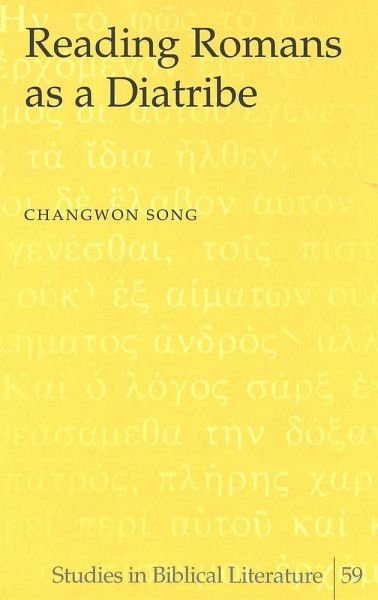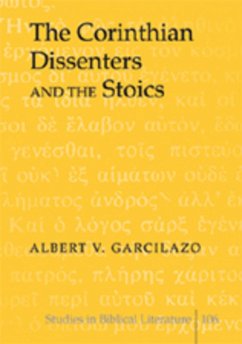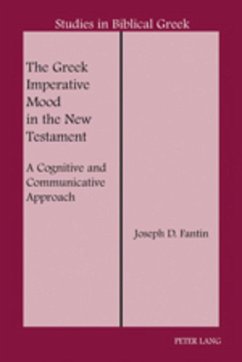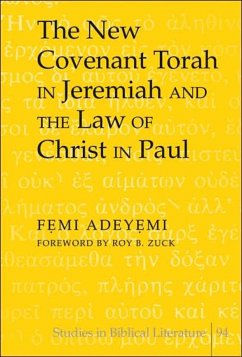
Reading Romans as a Diatribe
Versandkostenfrei!
Versandfertig in 6-10 Tagen
77,40 €
inkl. MwSt.

PAYBACK Punkte
0 °P sammeln!
This book illustrates how the macro-structure of the «body» of Romans essentially follows that of the diatribes in Epictetus's Discourses. As in Discourses, the diatribe in Romans begins with the thesis (1.16-17), then follows an indictment (1.18-32) and dialogues with a fictitious second-person singular in chapter two. Arguments with the m genoito formula dominate the middle part of the diatribe. In the middle of chapter eleven, the phase changes back to dialogues with the second-person singular. The ending of the diatribe Romans also, like Discourses, includes cynic and hyperbolic statemen...
This book illustrates how the macro-structure of the «body» of Romans essentially follows that of the diatribes in Epictetus's Discourses. As in Discourses, the diatribe in Romans begins with the thesis (1.16-17), then follows an indictment (1.18-32) and dialogues with a fictitious second-person singular in chapter two. Arguments with the m genoito formula dominate the middle part of the diatribe. In the middle of chapter eleven, the phase changes back to dialogues with the second-person singular. The ending of the diatribe Romans also, like Discourses, includes cynic and hyperbolic statements (14.21 and 14.23). Thus, the «body» of Romans should not be read as a real letter, but as a diatribe that was distributed in Paul's schoolroom and later appropriated as a letter. This teaching was not directed to a specific group of people, viz., the Christians in Rome, but rather intrinsically universalized. Therefore, its message is intrinsically more powerful for us.














